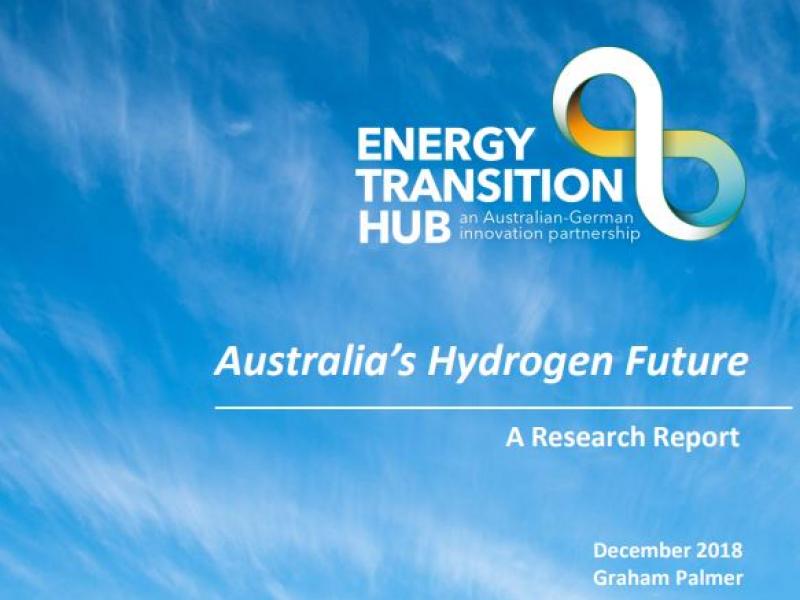
Technological breakthroughs in hydrogen technology, low cost renewables, and Japan's hydrogen import target, have driven renewed interest in hydrogen's role as an energy carrier and export opportunity. A `hydrogen economy' will address some of the most intractable problems of climate change. Examples include the substitution of coal with hydrogen as a reductant for iron production, seasonal electricity storage, and transport fuels for heavy vehicles, ships and aircraft. The utility value of hydrogen is its versatility as an energy carrier, storage medium, and chemical. Hydrogen intermediates between electricity, mobility, heat and work, but involves an `energetic trade-off' between versatility and efficiency.
This research report synthesises the recent literature, explores the concept of the `hydrogen economy, and includes four `what if' hydrogen scenarios up to 2050. Under the `Global Leader' scenario, all domestic industrial coal consumption, roughly half of natural gas, and 40% of petroleum would be substituted for electricity and hydrogen. The substitutions would roughly triple Australia's electricity demand.
The potential for hydrogen exports is vast, whether the hydrogen is exported as hydrogen or ammonia energy, or embodied in steel, non-ferrous metals, and other energy intensive products. Australia’s renewable resources, access to Asian markets, and established trading relationships are key competitive advantages.


